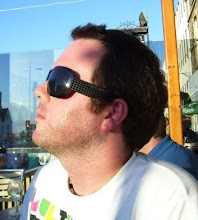(image from PanMacMillan)
(If McKaiser or anyone involved in the publishing or creation of the book wants me to take down the parts I recite here, please let me know and I will happily do so.)
The first part of McKaiser's book deals with race, a naturally significant concept in South Africa. While the issue raises hackles in South Africa faster than a cat being prospectively thrown into a pool, there are some excellent points he makes; you have likely heard them before but there is one in particular that combats the constant criticisms of the constant dialogue of race we speak about as South Africans. And he offers a healthy perspective:
"We'd better get over our fear of the language of race, and talk. There is no reason why the language of race should logically lead to racism. I can recognise which of my friends are black, coloured or white without using that recognition as a reason to be racist. We should stop blaming racialism for our racism. It is a bit like blaming your sexism on the fact that you can see women and men look different. Racism's the enemy. The language of race, and seeing differences in each other, is not the enemy" - A Bantu In My Bathroom, page 79.
I have lived in the UK and currently live in the US (in Chicago, nogal, a very racially divided city), where race, racism, racialism and so on are a non-topics. They don't get discussed a) because people don't like speaking about racism, particularly when they're on the good end of it, and b) because of the easy, yet mistaken, notion that speaking about racism doesn't fix it. It is unhealthy to not acknowledge race at all as it is, quite frankly, a very large part of who many of us are. Not acknowledging race, and therefore never speaking about it, is to deny many truths about many people. Forgoing any talk of race under any circumstances because of holistic belief that to achieve a non-racial society is to live under the illusion that races aren't different is nonsensical. "Fear of the language of race, and talk" limits our ability to grapple with the exact issues.
-------------
On page 41, chapter three entitled "Cape Town's dirty coloured secrets", McKaiser begins with a story about how he was accosted by two beggars as he walked along Long Street whom he described thus:
"They looked about twenty, or perhaps slightly older, but with the bodies of eight-year-olds, and certainly not taller. They were incredibly persistent as they begged for money, running in front of me blocking my path. They looked and behaved like feral animals. I felt a mixture of emotions: anger, annoyance, sadness." - A Bantu In My Bathroom, page 41.
McKaiser then goes on to explain how he told this story to a liberal white friend of his who took exception to his use of the word "feral" to describe the two aforementioned men - in the book McKaiser says he cut the argument short and later said "And my white liberal acquaintance can go to hell as far as I am concerned."
Sadly, this story didn't strike me because of the recollection of who populates the streets of Cape Town. Although I only lived in the city for a year I am well acquainted with such experiences, which are replicated far too often (of course, in Johannesburg, where I spent most of my life). But when I read this story I too initially took exception to the word "feral" to describe people - a word, for me, that dehumanises humans. What McKaiser went on to explain really got my thought machine ticking:
"But for the guy who was disgusted by my description, coloureds are objects of academic study: for him, only unemotive language will do. He humanises the bergies (beggars) of Cape Town with language. I choose language that bears witness to the stripping away of their humanity" - A Bantu In My Bathroom, page 43.
And this made a fundamental point for me. I grew up in the completely out-of-touch English South African liberal bubble and have spent the last eight or so years learning how much of South Africa (and the world) exists outside my scope: a hell of a lot. I am aware that the glass through which I view the rest of the country shows me a remarkably different picture to many other people - in this case, McKaiser, but an experience that is replicated plethorically. This was a reminder of just how often it occurs.
I am enjoying the book immensely, and I, thus far, at least, recommend you put it in many Christmas stockings this festive season.






No comments:
Post a Comment